

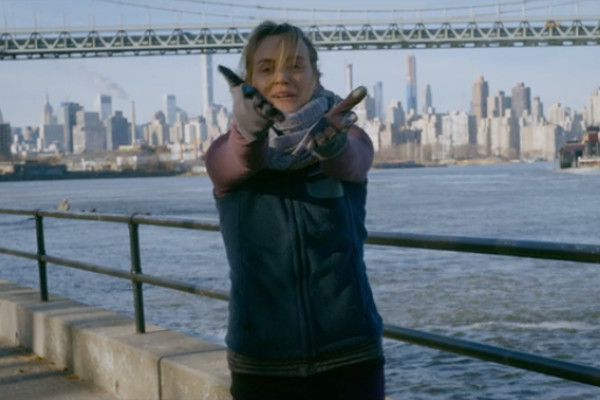
The climax of the series saw a charitable foundation set up in real life, known as The Poussey Washington Fund. If you're a fan of the show, it's worth going over there to make a donation to the cause. In the meantime, please join me in looking back over this final season, and ranking the 13 episodes from worst to best...
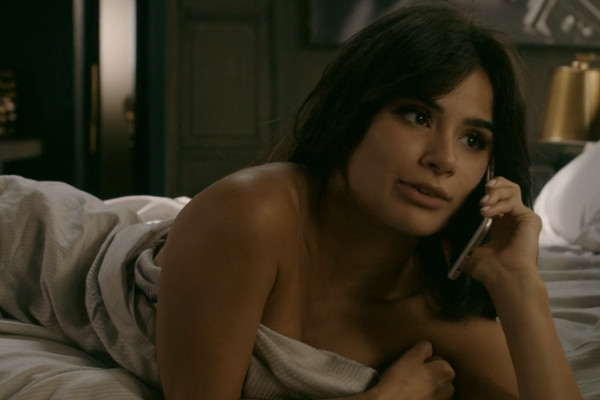
The final season of Orange is the New Black is surprisingly good, with a high level of consistency. I say "surprisingly", as season five was so bad even the creators slated it, and season six's write-up on this site was clearly written with a kind view, as it was, at best, merely okay.
So the revelation that season seven, if not quite returning to its peak years, does at least manage to go out on a high, is quite shocking. What really helps is that all the cartoonish, silly "komedy" is stripped way back, except for this episode, where a montage of interviews for the position of new warden fly by without anything approaching believability. The series has a right to be funny - it is labelled as a "comedy drama" after all - but when it becomes something you'd see made by Hanna Barbera a line has been crossed.
The instalment ends with Diane Guerrero's Maritza arrested for not having her ID when a group of ICE policemen just happen to raid the club she's drinking in. Like the ruminations on schoolboyish, "toxic masculinity", it's laboured stuff, using the series to make political points without considering whether it's actually realistic within the fictional context of the programme itself. Yet while this, the weakest episode of the season, leans towards subtext first, characterisation second, it's still solid entertainment.
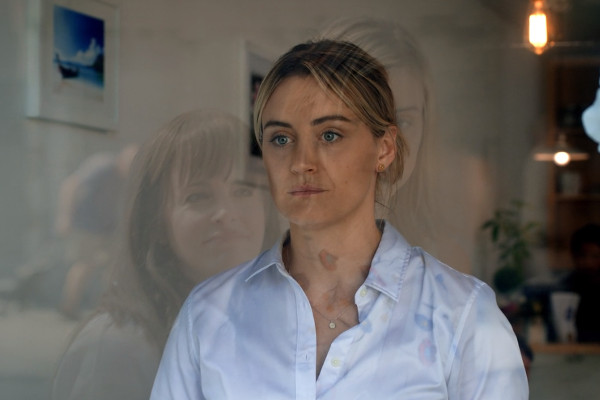
Watching TV is often a subjective experience, of course. If you approach television with a pre-established mindset it'll affect your enjoyment one way or the other. It's highly possible that these early episodes - the first five making up the whole bottom of the ranking - may be rated higher if watched again. For its first two seasons Orange is the New Black was such a good series that I thought it was a minor classic... seeing it sink to the depths it has in later years I just wanted it to be over to preserve what little dignity it had left.
That it ended with almost the best season in five years is a true miracle. This opener doesn't really plunge into the drama, but works well enough, an artistic touch being a segue that mixes the sound of Aleida's vibrator with a prison bell. A sign that this season was shot some time ago comes with Piper's voice over telling us that one of the best things about her is that she shares the same birthday as Liam Neeson.
Lastly, it's been frequently commented on in these articles that the continuity in the programme is often astonishingly bad. Characters having two-handed conversations will be distracting as the positioning will change from shot to shot, making it a genuine question as to whether the show would work better as a multi-camera production. There's an entire editorial department working on this expensive show, yet no one involved apparently noticed that 15 minutes in Piper points to a shop window with her right arm... before cutting to another camera angle where she's pointing with her left.
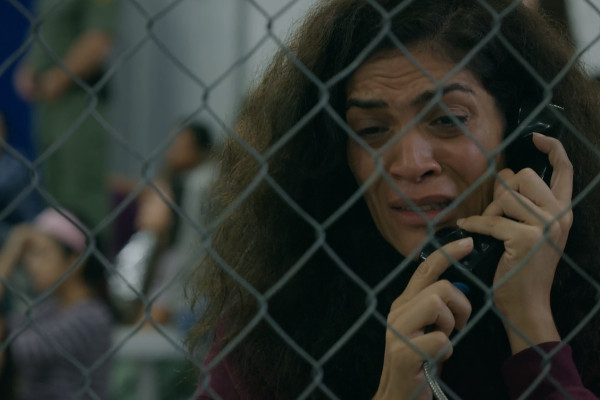
One striking element of the final season is that it makes pains to quickly remove most of the new characters introduced during season six, many written out with haste. Many of the new characters weren't popular with fans, Badison particularly, though they were regarded as okay here at The Anorak Zone. Yet, after a somewhat clumsy "sweep the pieces off the board" opening few episodes, we're just left with Sipiwe Moyo's Adeola from the new intake. Daddy was killed in the first episode, and here, Badison, a "top dog" of max despite always taking a beating, is removed to another prison.
The series is often spoken about as Piper being the "Trojan horse" to tell stories about people you wouldn't normally see on TV. And while that is admirable, it's questionable how successful that is, given all the Latino characters are involved in things like drug cartels, prostitution and murder. This said, they wouldn't be in a prison series if they'd all been to Sunday School. Yet the series shoots itself in the foot here by presenting a new warden who has experienced positive discrimination. For a series that has worked hard to present racial equality, it goes down an unfortunate road of diversity grants and "she got the job because she's black."
Elsewhere, Maritza is used as a vessel to make political points about the wider world, possibly an odd choice for a character who is, by her very nature, superficial. Using characters to reflect real world issues is admirable, but when it's done at the expense of the characters themselves, it renders the series into a group of two-dimensional mouthpieces without an identity, while a sign may as well flash up saying "Trump Analogy Here".
But despite some detractions, the overlapping plot lines work well in the final season. With Orange Is The New Black treading water a little during the previous two years, who would have guessed that out of it and Game of Thrones that 2019 would end with OITNB almost back to its best, while Game of Thrones would be the one to close with a stinker?
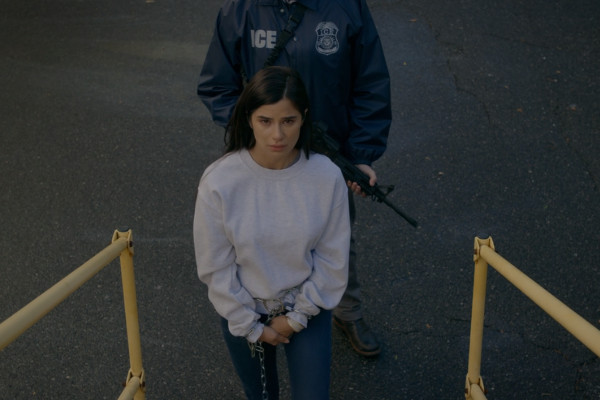
Minority Deport showcases arguably the least effective flashback ever seen in the series: Bella Shepard plays a young Aleida Diaz, but the resemblance is so slight and the situation so undefined that it's not immediately clear who she's supposed to be.
Yet even though this is an episode once more blighted by poor intershot continuity, it contains the element that the final season excels at: stories without end. The programme makers cleverly realised that just because the series ends, it doesn't mean the jail sentences do, and so lots of the stories are left unresolved.
While it would be easier to wrap things up in a bow and provide some contrived "happy endings", OITNB was never that kind of show, not even in its weakest moments, and so we're left with a series of unanswered questions as the programme ends: Is Daya dead? Will Taystee ever get her conviction overturned? Will Red be able to cope with her dementia? How will the prison cope with Hellman as the new warden? And if Joe Caputo does adopt and has to potty train, can he be certain the kid will do him a solid?
By having such open-ended situations, it causes the programme to live on in the mind of viewers, the true definition of "leave them wanting more". This is expounded on early here, with a fifth episode that sees Martiza deported back to Colombia... then never seen again.
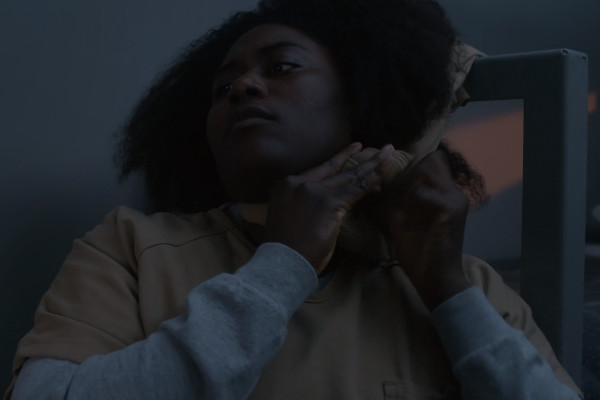
Piper's post-prison story is perhaps the least compelling element of the final season, and she's even more of a spoilt brat than usual. It's perhaps possible to be too anal when it comes to plot logic in OITNB, but Piper's office outburst at the end here could only happen if the viewers can accept that not only would an office's waste paper bin be used for nothing but Piper throwing away useless pens for at least two weeks, but that none of the cleaners would have emptied it during that time.
Piper's timeline also seems strange: she claims she's only been in prison for a year-and-a-half (#7.8) but the series appears to have taken place over a longer time period, even taking into account season five's three day set up. Not only that, but Piper seems to go through a lot more days on the outside than the inmates do on the inside during season seven.
Yet things get really muddy when Nicholls has to deliver a sermon on the state of America. Any drama series should be artifice first, subtext second, but OITNB frequently sidesteps this, or avoids it all together. It's one of the preachier, less realistic elements of the show that places a barrier between itself and genuine fiction, instead forcing it into "meta" territory. Thankfully season seven progressed well and finished on a real high, meaning the question of which was the best Netflix series starring Natasha Lyonne in 2019 - OITNB season seven or the excellent Russian Doll - is one that can be genuinely considered.
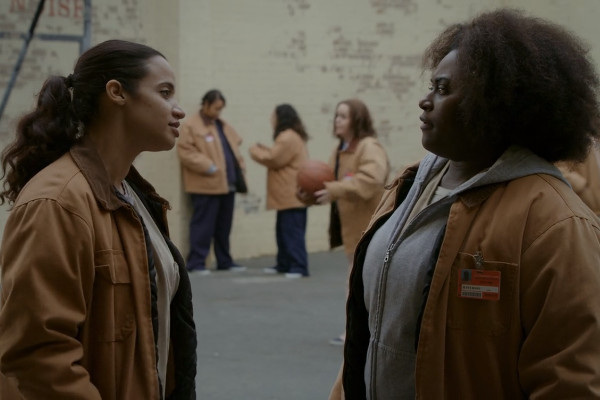
Characters change and grow over the course of the series, but it's truly surprising when our sympathies have been expected to transform entirely. Once Daya was the relatable, shy, body-conscious and artistic girl who had little control over her destiny.
Over the course of the series she's evolved - or devolved - into a murderer who traffics and has no moral compunction in giving Taystee drugs which she knows are there to assist her suicide. It's a very unusual turn of events in that a character who we were originally supposed to love has now changed so drastically that a character who was regarded as being, at best, selfish - her mother - performs a heroic act in the final episode by slamming her in the throat and trying to strangle her.
It's still astonishing how a high-profile series with a considerable budget like OINTB can have such an amazingly high rate of poor intershot continuity. it's not just the reverse shots in conversations, where people clearly aren't moving their mouths when they're supposed to be speaking, but things like Taystee's pencil (29'30m in) that goes from jutting, point-first, out between two of her fingers, before cutting to a shot where the point is in the palm of her hand and is held between thumb and index finger.
Such things may seem like slight, almost unimportant moments, but the problem is, the brain picks up on these inconsistencies and takes you out of the drama, even if it's not anything as bold as Red's teleporting glasses (#5.6).